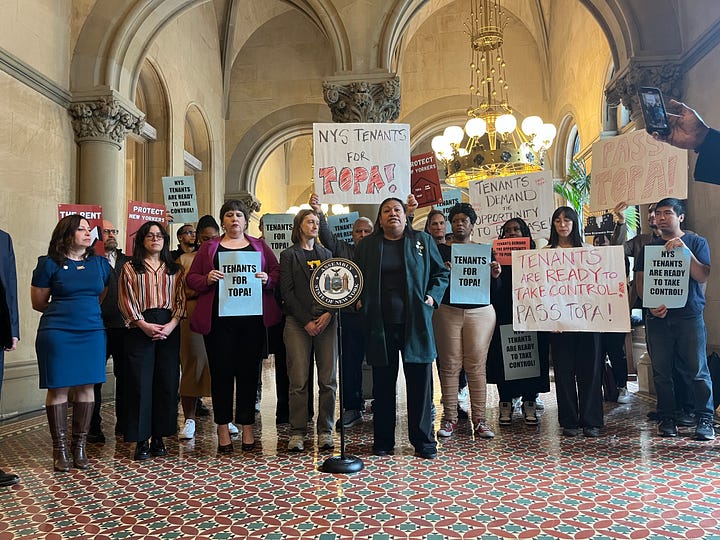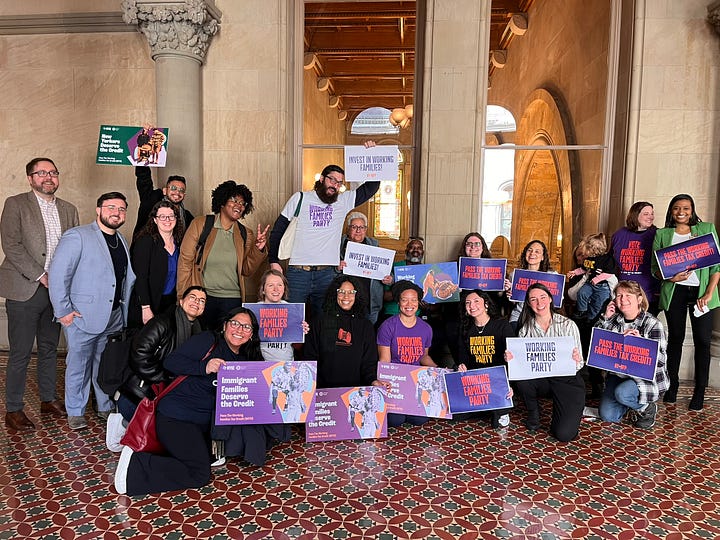
As I write this, I’m halfway through the somewhat-mysterious, internet-pronounced February 28th Economic Boycott. Listen, there are a lot of ways to think about this. Is the guy credited with announcing the date sort of creepy and probably out only for himself? Sure, yes. Will a single-day economic boycott achieve anything? Unknown. Is it performative? Yeah, but that’s not always a bad thing.
And also: is it helpful to align your purchasing power with your values? To me, the answer is an unequivocal yes. Some boycott inspiration for you from adrienne maree brown, here.
Living in alignment with your values isn’t about perfection, or absolutism or purity. As
cautions, let’s not turn the revolution into a crash diet. It’s just, as best we can, making choices about our day-to-day existence that align with our personal values and help build the world we want to see.Technically I’m participating in the boycott today, although to be honest I probably wasn’t going to spend money at any big box store or corporation today. I’m lucky enough not to have to drive much, so I fill up my tank like once a month and today wasn’t going to be one of those days anyway. So yeah, I’m following “the rules” but it doesn’t look much different than many other days.
I’m thinking about boycotts and values-driven spending as a long haul commitment. Will I finally cancel my Amazon Prime account? (Yes, maybe today.) Will I ever fully quit Meta-owned social media platforms? What should I do about Target? And will I finally comb through the investments being made on my behalf through my Simple IRA and stop supporting terrible corporations? Tbd.
I just know that I’ve been dedicated to buying local, supporting small business and getting out of the damn house. I’ll keep doing my best.
While we’re at it, a very quick way to get out of having to change your spending habits is by claiming that boycotts — or shopping ethically, supporting small biz, etc — is classist and only available to the most privileged. There are many many reasons why people rely on Amazon and Walmart, and it’s not their fault! I love what
said about this.A common refrain from vocal naysayers has been that a boycott is a privileged position that requires material comfort and wealth to participate in. I’ll concede that participating in boycotts of behemoth corporations is particularly easy when you’re a high school student living in your parents’ home, but Aja Barber keenly points out that folks are often using privilege as a cudgel in this conversation. She writes, “People don’t like the idea that in order to be a good person in our society of consumerism and consumption you might have to give some things up that you enjoy.” And while of course, there are reasons—including disability and poverty and restricted local access to consumer goods—that might make participating in a boycott impossible for some, framing the act of a shopping boycott broadly as a privilege allows folks to consistently exempt themselves from participation. It’s a knee-jerk reaction that derails conversation and impedes momentum. What’s a legitimate hindrance for some, ends up getting held up as excuse not to participate by others.
Whether or not today makes a difference, it feels good to keep investing in the small businesses I love. It feels really good spending money in my community. It feels excellent to shrink the gap between my reality and the world I want, no matter how small the action.
These economic actions aren’t about the sacrifice; they’re about the joy to be found in supporting community.
Elsewhere


More advocacy with Habitat, this time at the state level.


Proud to have joined NY WFP at the New York State Capitol to rally in support of the Working Families Tax Credit, and to show up for the Tenants Opportunity to Purchase Act effort too. Such good movements and powerful organizing all around us, with real potential to help regular people. As Maurice Mitchell says, there are enough billionaires to fill a medium-sized high school. And then there are the rest of us. Let’s build solidarity among the 99%. (Which also means not shaming people for getting by the best they can and spending their very limited dollars on the least expensive option, which is often from a big corporation.)






